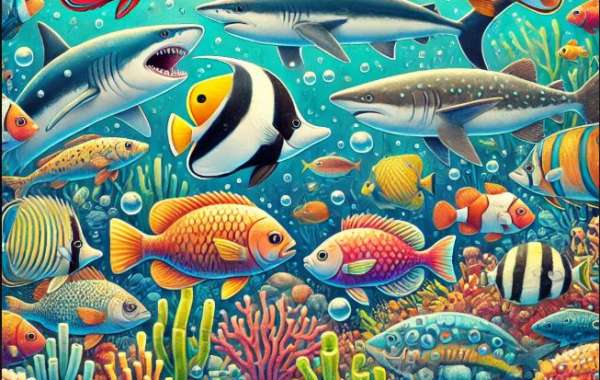Fish are among the most diverse and ancient creatures on Earth, thriving in oceans, rivers, and lakes for over 500 million years. They come in countless shapes, sizes, and colors, from the tiny guppy to the massive whale shark.
Types of Fish
Fish are broadly classified into three categories:
- Bony Fish (Osteichthyes) – This is the largest group, including species like salmon, goldfish, and tuna. They have skeletons made of bone and are covered in scales.
- Cartilaginous Fish (Chondrichthyes) – Sharks, rays, and skates belong to this group. Their skeletons are made of cartilage instead of bone, making them more flexible.
- Jawless Fish (Agnatha) – These primitive fish, such as lampreys and hagfish, lack jaws and have sucker-like mouths.
Importance of Fish
Fish play a crucial role in aquatic ecosystems by maintaining the food chain. Many species help control insect populations, while others contribute to coral reef health. Additionally, fish provide an essential source of protein for humans worldwide, supporting livelihoods through fishing industries.
Interesting Facts About Fish
- Some fish, like the clownfish, can change their gender during their lifetime.
- The lungfish can survive out of water for months by burrowing in mud.
- Electric eels produce powerful electric shocks to hunt and defend themselves.
Conservation Efforts
Overfishing, habitat destruction, and pollution threaten many fish species. Sustainable fishing practices and marine protected areas help preserve their populations for future generations.
Fish are remarkable creatures, vital to both nature and human life. Protecting them ensures a balanced ecosystem and a healthier planet.








